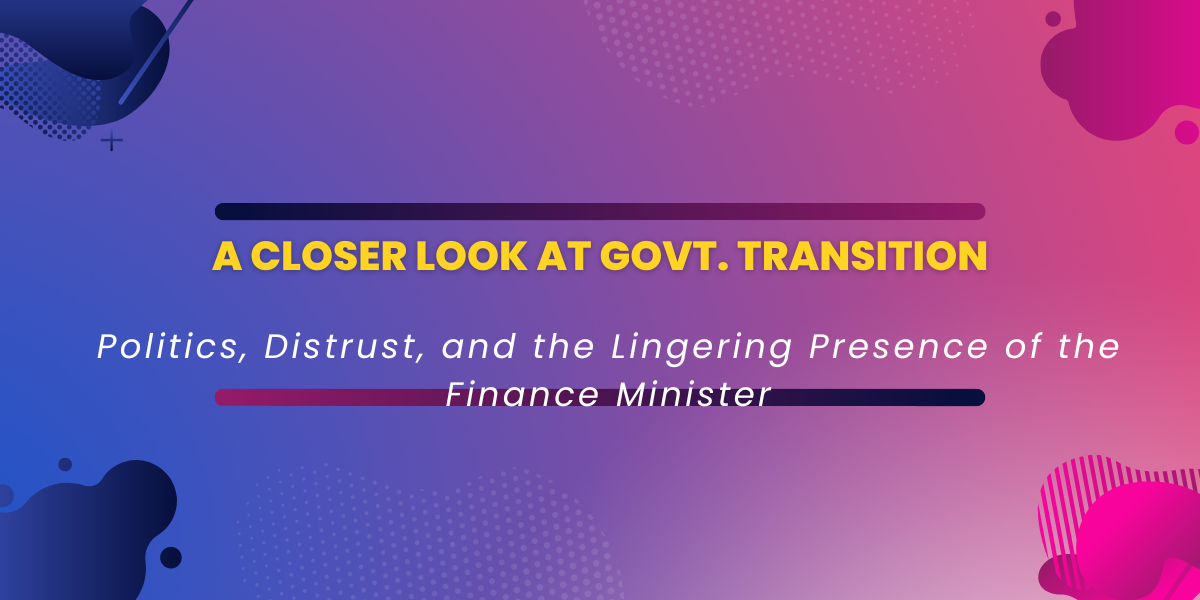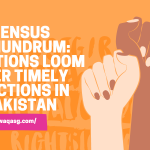
Introduction :
The Pakistan’s government nears the end of its tenure, the political landscape is in rife with speculation and intrigue surrounding the potential retention of Mr. Ishaq Dar. Although some allied parties reject the idea, Mr. Dar’s name continues to reverberate among the influential circles. The mounting momentum to appoint a politician to a significant role; with an emphasis on loyalty and political experience also raises pertinent questions about trust and mistrust within the establishment and PDM. As the threat from the PTI seemingly wanes, internal divisions within political parties become more prominent. This article delves into the intricacies of the unfolding political drama; investigating controversies and divisions within parties and analyzing the implications of entrusting a politician to a position aimed at deterring political influence.
Dar’s Potential Retention Amid Speculation
As the current government’s tenure approaches its conclusion, there are indications that Ishaq Dar might be retained despite the transition. Speculation about the potential caretaker prime minister has led to multiple mentions of Dar’s name. Although some allied parties, including the PML-N, deny this possibility, it seems that not everyone believes his name has been entirely dropped. Internal party members who hold influence appear to be supporting him, although the stance of other influential figures remains uncertain. His continued insistence on being ready and willing to accept important responsibilities suggests he enjoys substantial backing from within his party.
In addition to that, the growing momentum behind the idea of appointing a politician to a prominent position is evident, with increasing views; though some may be mere gossip, indicating that shortlisted candidates predominantly consist of politicians. Interestingly, the unspoken requirement of loyalty seems to be just as essential as political experience. This fervent quest for a loyal politician raises questions about potential distrust between the establishment and the ruling parties. The sudden interest in placing a politician in a role designed to keep politics at bay is intriguing and warrants further examination.
A sense of distrust permeates the political atmosphere as the parties believe that the threat from the PTI has diminished, causing their internal differences to become more pronounced. The initial plans to secure victory for the PPP in the upcoming election and anoint Bilawal Bhutto-Zardari as prime minister appear to have lost momentum. The limited influx of leaders into the party raises concerns, possibly causing internal apprehension within the party.
KP Dissatisfaction: Alliance Divisions and Governor’s Actions
In the Khyber Pakhtunkhwa (KP), the dissatisfaction among allies has become second only to the prevailing security threat. A storm of criticism has emerged against the dominance of the caretaker set-up by JUI-F and the actions of the governor. Who not only holds a senior position within the party but is also a relative of the maulana. Interestingly, this criticism surfaced rapidly after months of the government being in power, as if the previous leniency was now unacceptable with elections approaching. The underlying priorities responsible for this shift are challenging to discern. Nonetheless, it appears that the issue extends beyond a mere passing concern, as it has gained momentum on talk shows and remains a topic of discussion.
The criticism of the governor has also exposed divisions within the PDM alliance. The PPP and ANP have expressed their disapproval of JUI-F’s actions, while the PML-N has appeared more distant. This disparity may stem from the PML-N’s relatively limited presence in KP and a preference to maintain the maulana’s contentment rather than confront corruption and misgovernance in a province that is not Punjab. As a result, clear lines have been drawn in KP, with the ANP and PPP on one side and the JUI-F and PML-N on the other.
PML-N’s Unease: Speculations and Surging Activity
Within the PML-N, there is an underlying sense of unease or even mistrust. Despite repeatedly asserting that Nawaz Sharif will be the next prime minister, the current prime minister has embarked on an extensive media campaign. He is now attending numerous events, giving speeches, and granting interviews, a departure from his previous approach. This flurry of activity hints at a potential election campaign or a bid for the prime ministerial position. The circulating rumors of ‘dulhan wohi jo piya man bhaaye’ (a bride is one fancied by the groom) only add to the speculation, leaving questions about how the party and the elder brother perceive this surge in activity.
Amidst such speculations, it becomes easier to comprehend the rumors surrounding Mr. Dar’s and his stay at Prime Minister House. His name seems to imply distrust within a section of the PML-N leadership and other power holders. Some of the political leadership, possibly extending beyond the party itself, appear to be concerned about the intentions of these power holders. As the PTI’s influence dwindling, the need to manage an unwieldy coalition is diminished, leading to the question of why not simply appoint a caretaker, as done in Punjab and KP? This notion raises the query of potential objections from any quarters.
Precedent: Unelected Governments and Constitutional Priorities
A precedent has been established, indicating not only delays in holding elections but also the operation of provinces under the un-elected Govt. This shift has been achieved by prioritizing constitutional requirements other than the mandate to hold elections within three months. For instance, during the dissolution of two provincial assemblies, it was argued that the Constitution necessitated caretaker governments in all provinces during elections, both national and provincial. If elections in Punjab and KP were conducted earlier, it would have resulted in these provinces holding National Assembly (NA) elections without caretaker governments. Such a scenario was deemed impractical, with caretakers being considered more crucial than adhering strictly to the three-month election time frame following dissolution.
Furthermore, the issue of conducting a census now appears to hold greater significance than the previously emphasized three-month limit. The courts’ involvement seems to have diminished, given that the Election Commission holds the authority to determine the election date. It is possible that some individuals believed a loyal politician could prevent delays in this context, as neutral caretakers may not possess the same sense of urgency.
Another reason attributed to Mr. Dar’s candidacy seems to have originated from himself. The argument put was that disinterested and neutral individuals would lack the ability to make the right decisions to maintain economic stability, which only politicians could accomplish. Thus, the notion of “the Dar Man” emerged. However, it is worth noting that, besides political parties, the prevailing belief remains that technocrats are the most suitable candidates to manage the economy. If a technocrat becomes visible once the caretaker’s selection is made, it would be apparent that Raja Riaz’s influence prevailed over the PML-N’s choice. A talk show analyst pointed that, underscoring Raja Riaz’s crucial role in the final decision, and her seriousness on the matter was evident.




No comment yet, add your voice below!